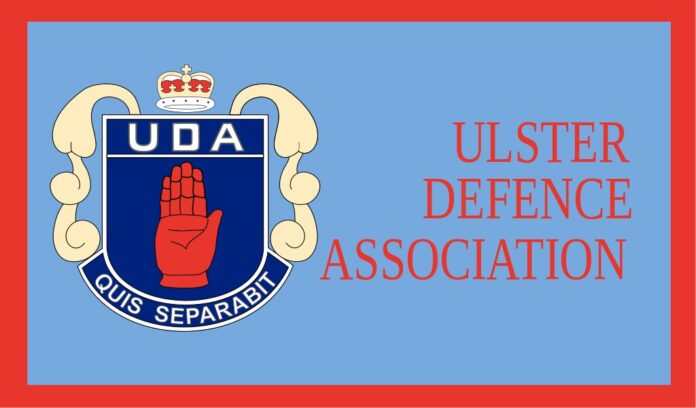Le conseguenze della Brexit non tardano a farsi sentire in Irlanda. Torna l’incubo del terrorismo
Secondo gli accordi sottoscritti da Boris Johnson con l’Unione Europea, l’uscita della Gran Bretagna dalla UE avrebbe comportato qualche conseguenza di rilievo per lo status economico e commerciale dell’Irlanda del Nord. In teoria Belfast e l’Ulster, essendo sotto sovranità inglese, avrebbero dovuto uscire anch’essi dall’Unione. Tuttavia ciò avrebbe comportato le definizione di una nuova barriera doganale fra l’Irlanda del Nord e la Repubblica d’Irlanda, che continua a far parte dell’Unione.
Ciò avrebbe significato una nuova spaccatura dell’isola e il possibile riaccendersi della guerra terroristica fra cattolici, favorevoli all’unificazione sotto la sovranità di Dublino, e i protestanti lealisti determinati a restare sotto l’egida di Londra. Si era deciso quindi di considerare come confine fra Regno Unito e UE il Mare d’Irlanda che separa l’isola dall’Inghilterra.
Lo spettro di un ritorno al passato
Ma i lealisti delle sei contee dell’Ulster si sono sentiti traditi da Londra e hanno incominciato a temere che il governo di Sua Maestà li volesse abbandonare alla maggioranza cattolica che vorrebbe l’unificazione dell’isola sotto la sovranità di Dublino.
Il ricordo dei tre decenni di guerra civile che, a partire dal 1969, ha insanguinato l’isola facendo 3.600 vittime, è ancora vivo. Al terrorismo di ambedue le parti aveva posto fine la l’accordo del Venerdì Santo del 1998, che sanciva l’istituzione di un governo misto cattolico – protestante e la pacificazione fra le parti. Tuttavia piccoli gruppi estremisti di ambedue le fazioni non hanno accettato tale soluzione e ora, con la Brexit, sono rientrati in azione.
Perché la Brexit ha complicato le cose?
Con la Brexit i lealisti dell’Ulster sono divenuti di fatto cittadini stranieri in Gran Bretagna e la loro posizione rispetto alla maggioranza cattolica si è indebolita notevolmente. I sindacalisti hanno protestato vivacemente per il fatto che le relazioni commerciali con quella che essi considerano ancora la madrepatria potrebbero essere danneggiate.
Qualche scaffale vuoto nei supermercati ha suscitato un allarme sociale crescente, alimentato da voci incontrollate su un possibile referendum per l’unificazione dell’isola. Tutto ciò è stato sufficiente a innescare a Belfast i primi scontri notturni fra cattolici e unionisti: bottiglie molotov, mezzi pubblici dati alle fiamme, decine di persone ferite.
Protagonisti i giovanissimi che non hanno vissuto gli anni del terrorismo e per questo non ne hanno paura. Belfast ritiene di potere isolare gli estremisti e tenere sotto controllo la situazione, ma la preoccupazione regna sia a Londra che a Bruxelles.
Belfast, no peace but fire
The consequences of Brexit were soon to be felt in Ireland. The nightmare of terrorism returns
According to the agreements signed by Boris Johnson and the European Union, the exit of Great Britain from the EU would have had some significant consequences for the economic and commercial status of Northern Ireland. In theory, being under British sovereignty, Belfast and Ulster should also have left the Union. However, this would have led to the creation of a new customs barrier between Northern Ireland and the Republic of Ireland. The latter continues to be part of the of the EU.
This would have meant a new split on the island and the possible rekindling of the terrorist war between Catholics, in favor of unification under the sovereignty of Dublin, and the Loyalists (protestants) determined to remain under the aegis of London. Therefore, it was decided to consider the Irish Sea that separates the island from England as the border between the United Kingdom and the EU.
The fear of a return to the past
Loyalists of the six counties of Ulster felt betrayed by London and began to fear that Her Majesty’s government would abandon them to the Catholic majority who would like to see the unification of the island under the sovereignty of Dublin.
The memory of three decades of civil war is still alive: starting in 1969, it bloodied the island by killing 3,600 people. The Good Friday Agreement of 1998, which established a mixed Catholic-Protestant government and the pacification between the parties, had put an end to terrorism and violence on both sides. However, small extremist groups have not accepted this solution and now, with Brexit, they are back in action.
Why has Brexit complicated things?
With Brexit, the Ulster loyalists have become de facto foreign citizens in Great Britain and their position has weakened considerably compared to the Catholic majority. Trade unionists protested loudly that trade relations with what they still see as the motherland could be damaged.
A few empty shelves in supermarkets have raised a growing social alarm, fueled by uncontrolled rumors about a possible referendum for the unification of the island. All this was enough to trigger the first night clashes between Catholics and unionists in Belfast: molotov cocktails, public transport set on fire, dozens of people injured.
The protagonists are very young people who have not lived through the years of terrorism and for this reason are not afraid of it. Belfast believes it can isolate extremists and keep the situation under control. However, both London and Brussels are highly concerned.








